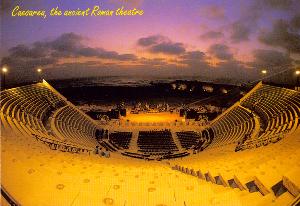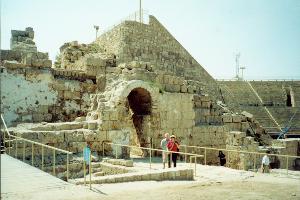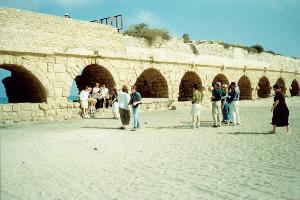Perhaps the most dramatic biblical event in Caesarea occurred in the very theater where we now sit. Here, one morning in A.D. 44, Herod Agrippa I stood in a silver robe to give an oration, his clothing reflecting the bright Mediterranean sun. “The voice of a god and not of a man!” the people shouted, and Herod approved of their judgment. God didn’t, however, and he struck Herod with worms, with which the king died a horrible death about five days later.




